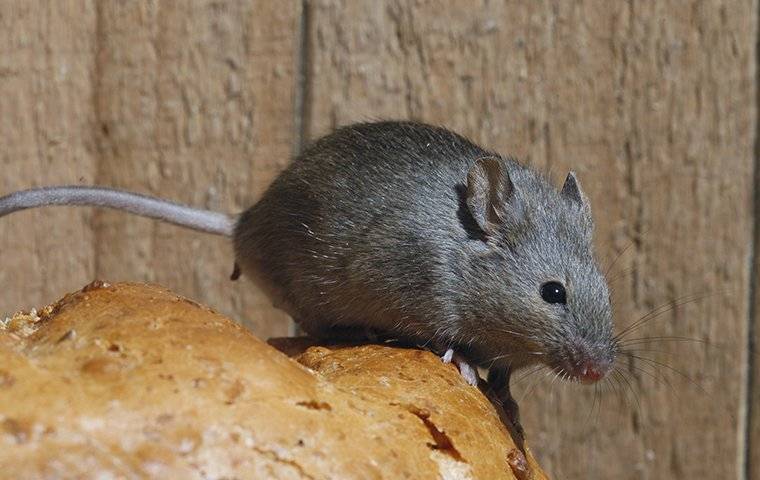
Rodent-Proofing Your Charlotte Home: Effective Prevention And Control Strategies
It is no fun finding out that you have a rodent problem in your home. A common way Charlotte residents discover these critters is that they hear noises in their walls. But rats and mice can live in your home without making any discernible noises. If this happens, those sneaky pests can impact your health and damage your property right under your nose. This is why it is best to be proactive about rodent control and prevention. Join us today as we discuss common rodents in Charlotte, reasons to keep them out of your home, and simple exclusion tips that really work. If you're already dealing with a rat or mouse problem and you are in need of pest control in Charlotte, remember that your Go-Forth Home Services service team is standing ready to help. Not only can we get rid of rodents for you, but we can also help you get long-lasting and sustainable rodent protection for your home. Call, write, or text for assistance.

How To Identify Common Types Of Rodents
It is helpful to know a bit about the rodents you may encounter on your property or in your home. They are unique in their own ways. Let's quickly run down the list of common rodents in Charlotte and touch on a few noteworthy facts you should know about each.
Squirrels: It is common to see squirrels in your backyard. They are active during the day and they are plentiful. The good news is that these backyard rodents are often content to stay in the backyard. Just in case you don't know, squirrels are the bushy-tailed animals that bound across your lawn, climb trees, and run across powerlines.
Mice: We have three common types of mouse pests in Charlotte. They are house mice, deer mice, and white-footed mice. House mice are gray with a white belly. Deer mice have the tawny colorations of a deer with a white underbelly. White-footed mice have a reddish brown coat with a white underbelly and feet. House mice commonly enter homes, stay permanently, and produce lots of pups. Deer mice and white-footed mice tend to infest storage lockers, sheds, garages, and barns.
Rats: We have two common kinds of rat pests in Charlotte. Norway rats have brown fur and are known for digging tunnels in the ground. Roof rats are black rats that climb trees like squirrels and get into attics by way of roof vulnerabilities, such as seals around skylights or exhaust pipes. Rats are stocky rodents with a tail that is thicker than a mouse tail but not bushy like a squirrel tail.
The worst rodents to find in or around your home are roof rats or house mice because of their ability to dwell inside residential structures, but all of these rodents can present a threat to your health and damage your property, including squirrels.
Rodents Spread Disease And Damage Property
Rodents don't seem like much of a threat, due to their small size, but don't let their size fool you. The tiniest of mice can present a very big problem. Pest rodents share a few basic traits that make them horrible houseguests.
- Rodents chew on many things. The worst of all things they can chew on in your home is wiring. Many of the wires in your home carry live current and a cut wire can produce sparks. If the sparks land on a flammable material, a fire can ignite. Experts say that 20 to 25 percent of fires that ignite from untrackable origins are likely related to rodent infestations.
- Rodents chew holes to get into your home. Those holes don't just let rodents in. They can let other pests in—some of which are harmful. Along with secondary pests, the holes created by rodents may allow rainwater to enter your home, which can lead to wood rot or mold. A black mold issue can create mysterious health problems, particularly when rodents start problems in hidden places.
- Rodents have the unfortunate habit of leaving their droppings and urine in the places they explore or sleep. These are a source of contamination in your pantry and kitchen, but they will also contaminate and damage insulation, items in storage, and building materials throughout your home.
- Rodents are furry animals that pick up parasites, such as ticks and fleas. Ticks are particularly bad as seed ticks drop off their initial host and seek larger animals. One little mouse can have as many as a hundred seed ticks on its body.
If squirrels enter your home, they're likely to stay in attic spaces where they will chew on things, create holes, leave waste materials, and shed ticks. If rats or mice get into your home, they can move up and down through your wall voids to access zones that are near your common areas. They may even come out at night to explore your first and second floors. While each rodent is a bit different, it is best to keep all rodents out of your home. Let's turn our attention to the steps you can take to exclude these critters from indoor spaces.
Simple Rodent Exclusion Tips That Work
The idea of exclusion is to take steps that uninvite rodents into your home. You can do this in many meaningful ways without any specialized knowledge of rodent control and management.
Tip 1: Block access. When rodents explore your exterior and don't find a way to enter, they may stay outside. Rodents typically take small holes and make them larger. They aren't prone to creating holes from scratch. When patching holes, you'll want to get every entry point, no matter how small. Rats are big rodents, but a full-grown rat can squeeze through a gap the width of a quarter.
- Use expanding foam to fill in any open holes or cavities within your exterior walls.
- Use a caulking gun to create a complete seal around exterior window and door frames.
- Fill gaps around pipes with mortar, expanding foam, or caulk.
- Replace any weatherstripping if you're able to detect light leaking through.
- Check your door sweeps to see if you have good contact all the way along the bottoms of your exterior doors.
- Make sure every vent exhaust has a cover or protective screen.
- Patch window and door screens or replace the screens entirely.
- If you have storm cellar doors, check to make sure you have a good seal where the two doors meet at the bottom.
Tip 2: Remove food sources near your home to reduce rodent activity. What do rodents eat in your yard? They'll dine on nuts, berries, vegetables, fruits, insects, multi-legged critters, salamanders, plant seeds, bird seeds, and food sources in an open trash receptacle.
- Rake nuts up and store them in a bin until removed from your property.
- Protect berries and vegetable gardens with fencing material. Make sure to insert the material below the ground to prevent rodents from tunneling under your fences.
- If you have fruit trees, keep the fruit cleaned up as much as possible. You may also gird your trees with sheet metal to prevent rodents from climbing up and getting fruit off the limbs.
- A residential pest control service plan can help you with insects, multi-legged critters, and salamanders.
- Locate bird feeders to positions that are at least 25 feet from your exterior.
- Keep your trash receptacles covered at all times and refrain from overfilling.
Tip 3: Remove objects rats and mice can use for navigation and which have voids in which they can hide. Rats and mice have poor eyesight. Unlike a squirrel, they can't easily get around in your yard if it is free of ground objects. They use their sense of touch to feel their way from object to object. They also use echolocation by squeaking and listening for the returning sounds. They're drawn to hollow cavities, such as the crawl space underneath structures.
- Pick up yard clutter.
- Apply fencing material or hardware cloth to keep rodents out from under your deck or storage shed.
- Move stacked wood, construction materials, and dead branches away from your exterior.
- Blow leaves out of your landscaping and out from underneath exterior structures.
Tip 4: Consider the routes rodents may use to enter your home. Squirrels and roof rats often climb trees and run across powerlines to get onto roofs. Mice and Norway rats commonly get in through gaps and commonly get in through gaps and cracks in foundation walls and around exterior doors.
- Remove tree branches that hang near your roof.
- If you have pipes on the sides of your home, install guards to block rodents.
- If you have powerlines that touch your roofline, install guards to keep rodents off your roof.
- Appy hardware cloth over the downspouts of your gutter system.
These all-natural methods have a big impact on rodents and can keep them out of your home permanently. If more control is needed, contact a licensed professional. A technician is trained and experienced to address rodent problems completely so that no rodents are left in your home to secretly impact your health and damage your property over time.
The Pros To Know For The Best Rodent Control For Your Home
Are you in Charlotte? If you are, you're in our service area. Go-Forth Pest Control provides smart and eco-friendly rodent control solutions in Charlotte and the surrounding region.
Contact us by phone or text for immediate assistance with your rodent control issue. We'll guide you toward the options that will work best for you, your family, and your home. You don't have to live with rodent pests. Help is here!
Customer Reviews
-
“He spent time educating us about "pests" and provided information regarding services with GoForth.”- Joyce C.
-
“Texted me before coming. Worked with me playing musical rooms with my dogs. I'll see how things are.”- Constance E.
-
“Amazing response time, reasonable prices, great customer service. Tevin was thorough and confident in his plan to fix our horrendous fire ant problem. We have had negative experiences with prior exterminators and probably waited way too long to call Go-For”- Ashley T.
-
“- Toya B.
We have been customers for almost 7 years for a reason. Our technician is the best. He always knows exactly how to address whatever pest has decided to bother us. We have referred them to many of our neighbors. Well worth the cost not to have to worry a
” -
“Answered all my questions and I felt their pricing was very reasonable.”- Deborah J.
-
“Brian went above and beyond what was expected, and I hope I get him again as my technician for future services!”- Tam L.
-
“He was thorough with inspecting and treating our home, which I really appreciate, and he took the time to answer my many questions.”- Jasmine B.
-
“Love the detailed summary and pics of what he did and saw! And did I mention how wonderful Olivia was to get us all set up?!!”- Beechy A.


Over the years, we’ve boiled down our mission to a core set of values:
-
The Best & Highest ReviewsBBB A+ Rated and 4.8 or higher on Google and Facebook for the highest rated local company in the Triad.
-
Seven North Carolina Technicians of the YearHome of the 2009, 2010, 2012, 2013, 2014, 2015, & 2016 statewide technicians of the year.
-
A+ Rating with Better Business BureauBBB Accredited since 1973 for 48 years of continuous accreditation.
-
Serving North Carolina, South Carolina, Georgia, & Virginia
With six locations and dozens of technicians in the field every day, we service areas of North & South Carolina, Georgia, and Virginia.
-
Residential & Commercial ServiceResidential and commercial clients in Greensboro, NC and beyond can attest - Go-Forth provides only the very best in home services.
-
4.9 Star Google Review Rating Across Three StatesGo-Forth Home Services is proud to have thousands of Google reviews with an average rating of 4.9 stars!